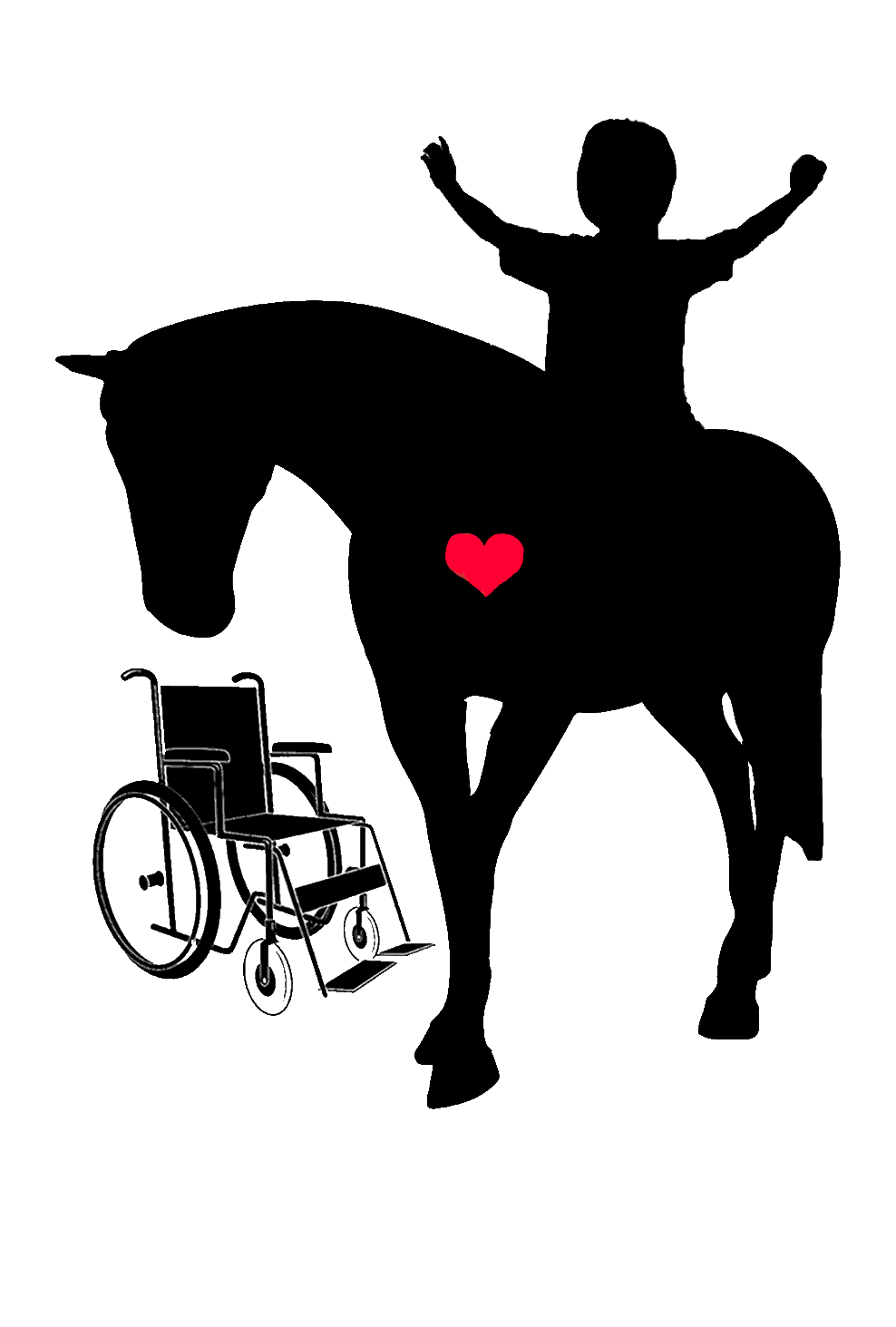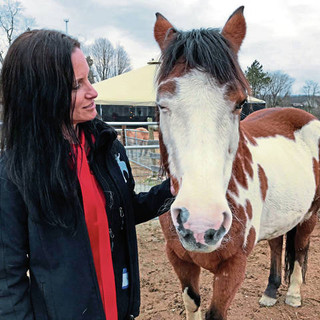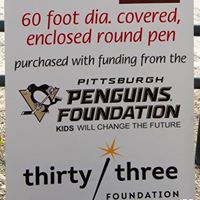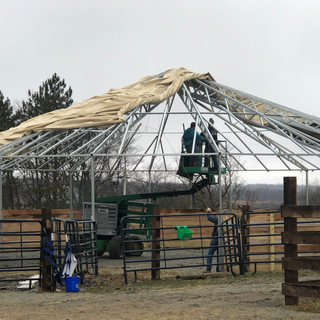No This is Not "April Fool's"
https://triblive.com/local/westmoreland/cook-township-centers-new-enclosure-allows-year-round-equine-therapy/
Catherine Markosky’s stable of nine therapy horses have important work to do.
On any given day, they might help a child with special needs improve his motor or communication skills — or they could serve as a calming influence on a youth with behavioral problems.
Thanks to a new round pen that is under roof, they’re now able to assist clients at Markosky’s Ligonier Therapeutic Center year-round, no matter the weather.
“It’s a one-of-a-kind design,” Markosky said of the pen. “We were losing a lot of (therapy) sessions because of the weather. We can now have sessions in the rain, wind or snow.”
Markosky officially unveiled the new pen Friday during an open house at the Cook Township center attended by officials of the Greater Latrobe-Laurel Valley Regional and Ligonier Valley chambers of commerce. The center opened in August 2016.
Donations from the Pittsburgh Penguins Foundation and The 33 Foundation covered about half of the $80,000 cost for the new 60-foot-wide enclosure, where clients can interact with or ride the horses. A private donor and fundraising covered the rest.
Markosky’s husband, Mike, took charge of the construction — including an aluminum frame, a poplar side wall and a tent-like roof of ballistic material that can withstand the forces of wind and the weight of snow.
“Not long after we had it up, we had winds of up to 65 mph for three days,” he noted.
Catherine Markosky was inspired to explore the hippotherapy services her facility provides to others by her son, Mason, now 18. He experienced a traumatic, premature birth with complications including a brain injury. He also has Costello syndrome, a rare genetic disorder typified by short stature and developmental delays.
“My son knows how to walk because of riding on the back of a horse,” she said.
In hippotherapy, she explained, a physically challenged person who is led on a horse will experience pelvic movements similar to those used in walking.
Horseback therapy, she said, also can “bring out the speech and communication” in children who may feel intimidated in other settings.
She recalled how a young boy with autism successfully completed an exercise, placing numbered bean bags in stations with matching numerals spaced around the horse enclosure. Then, unexpectedly, he indicated the sum of the numbers on his iPad. “He didn’t pass his kindergarten entry exam, but he was showing us he knows how to add,” Markosky said.
The center’s hippotherapy sessions are guided by occupational and physical therapists who work there as independent contractors, Markosky said.
The center also offers Equine-Assisted Growth And Learning programs. That’s where a licensed social worker or behavioral analyst teams with an equine specialist to help clients deal with a range of issues while interacting with a therapy horse. That range can include mental health concerns, addiction recovery, veterans suffering from post-traumatic stress disorder, at-risk adolescents, caregivers experiencing burnout and corporate staff interested in team building.
“I think equine-assisted therapy is finally taking the world by storm,” Markosky said. “Horses are just healers.”
The center also plays host to a therapeutic riding program geared toward children who are more able-bodied but may be challenged by an intellectual or developmental disability.
With a waiting list of clients, Markosky said she’s hoping to enlist more therapists.
A more ambitious goal is to erect a large, steel indoor horse arena.
The center operates under the banner of Markosky’s charitable organization, Southern Tier Alternative Therapies. For more information, visit statinc.org or call 724-593-4742.
Jeff Himler is a Tribune-Review staff writer. You can contact Jeff at 724-836-6622,jhimler@tribweb.com .


























